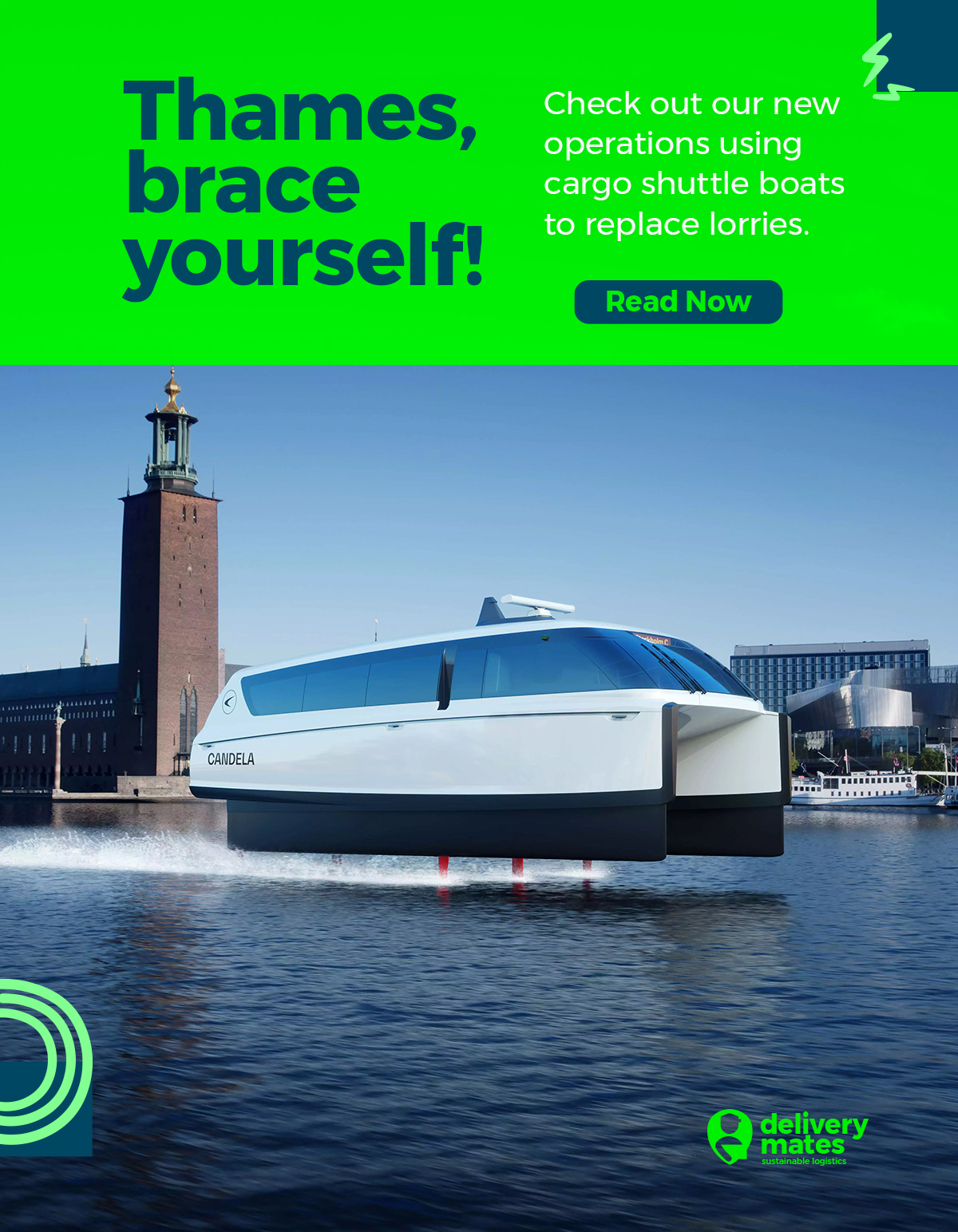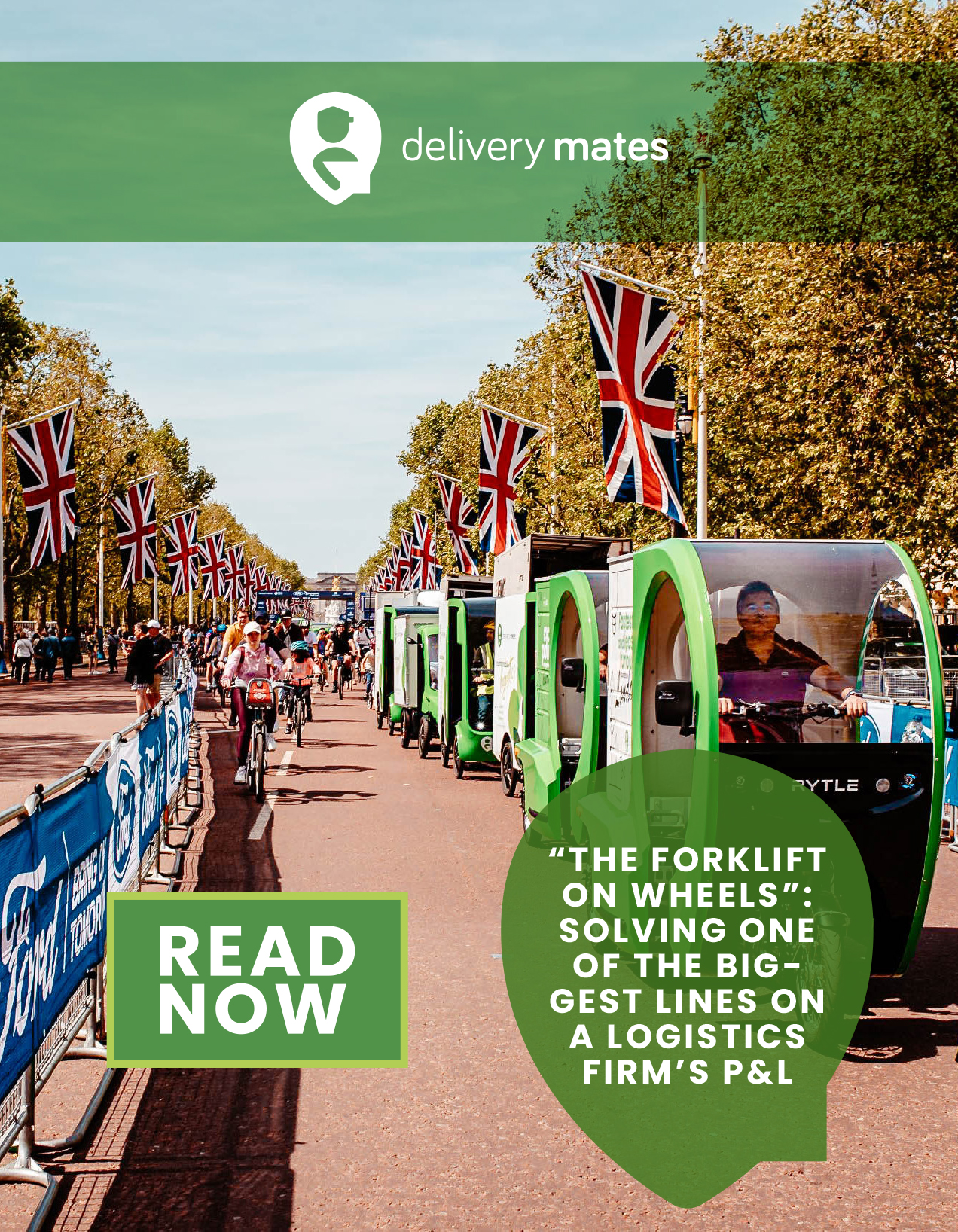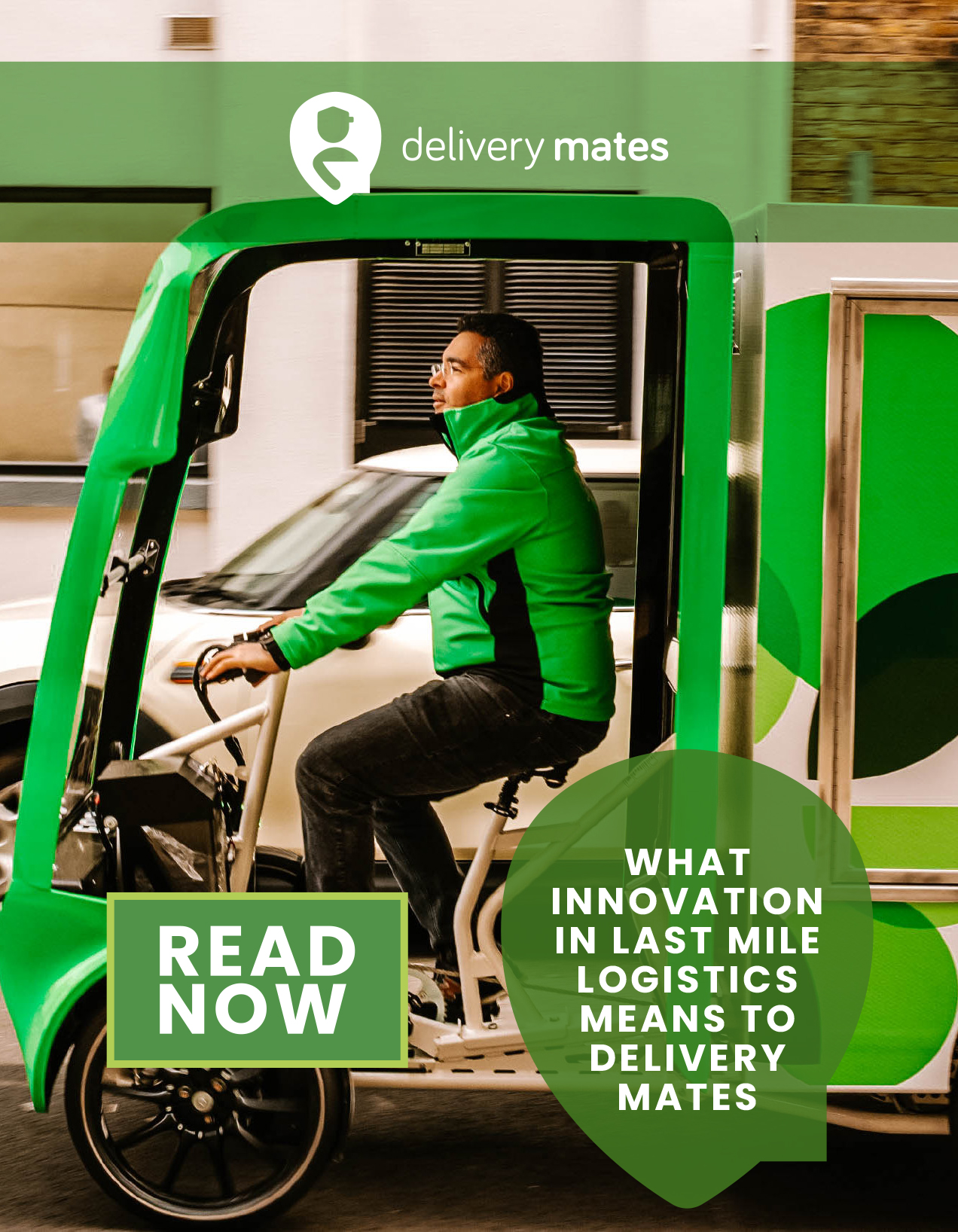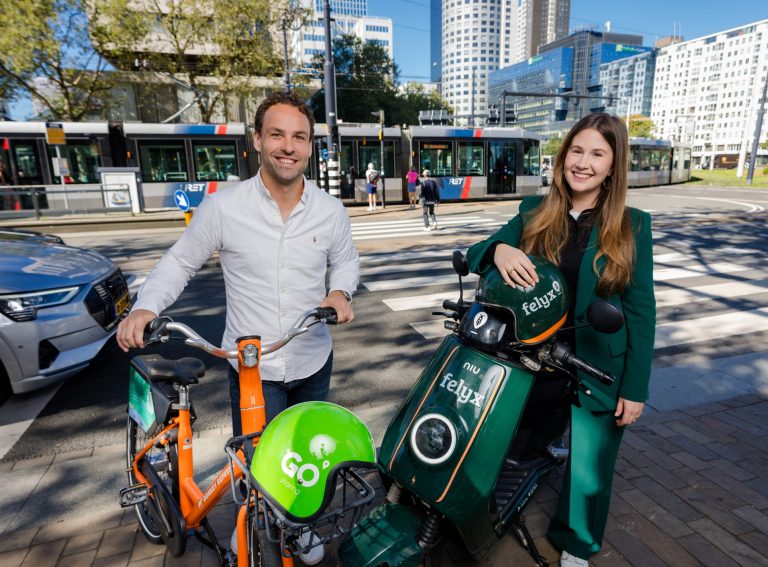If you read just one thing about electric scooters this week, make it this report.
This forensic examination of the role shared electric scooters could play in London’s transport mix was published last week by transport and research consultants Momentum and 6t. The report combines their research in Paris with Dott’s operating data to assess user behaviour and the effects of regulation and infrastructure provision, while drilling down into how this new mode could work in London.
The findings are staggering, and include detailed analysis of where, what and why scooter parking ought to feature.
Here are five key statements from the report.
1: Nearly 90% of riders would be comfortable walking two minutes to pick up a scooter, but nearly half (46%) wouldn’t walk more than two minutes.
And nearly half of e-scooter riders who gave a lift to a passenger (which isn’t allowed) did so because there weren’t enough scooters available. This highlights that fleet availability is critical to user uptake. It also goes to show that creating a dense and robust parking network must be delivered in order to cement scooter sharing as a viable alternative mode of transport.
2: Between Spring 2019 and Autumn 2020, riders who completed their trips in allocated parking spots jumped from 35% to 97% (according to Dott’s data).
This closely follows changes in city policy, as officials began to tightly control a previously-unregulated sector, whittled down numerous fleet operators to just three and started to introduce a comprehensive network of 2,500 (and growing) scooter parking bays. Each bay accommodates six e-scooters, matching the 15,000 units deployed on the streets of Paris, and is on average around 100m from its neighbour (32/sq km).
Fleet operators contribute €50/scooter annually to the city to help defray these costs – that’s €750,000 per year for some paint. Not bad for city finances.
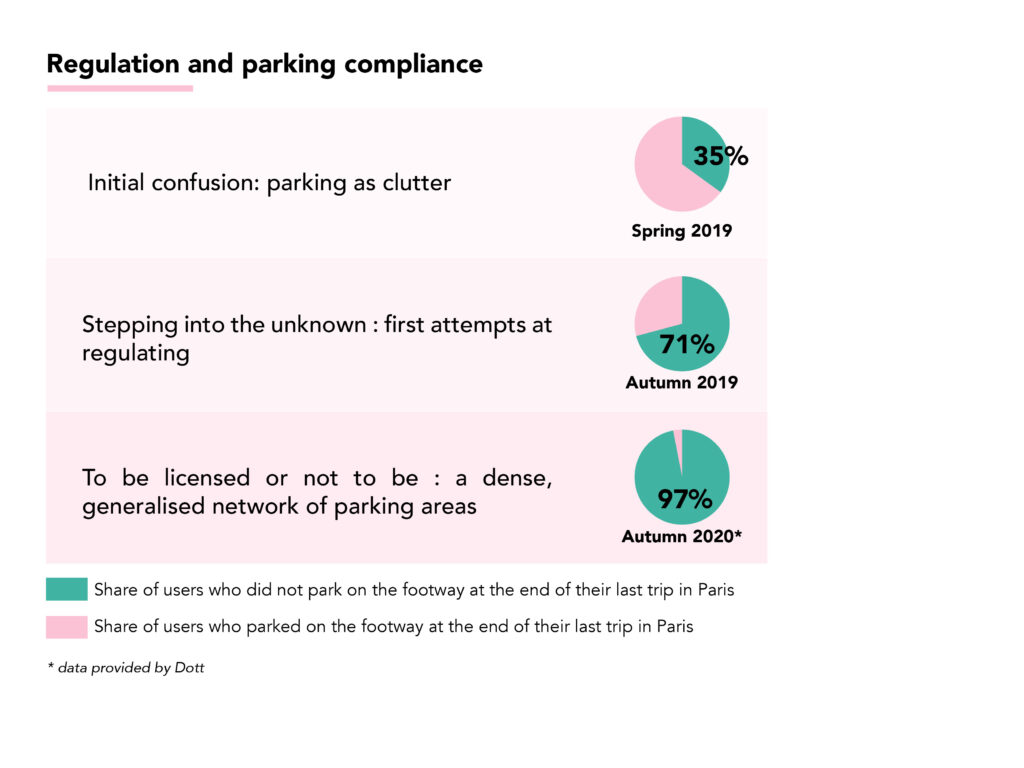
3: Some 97.63% of inner London can be reached from a rail or tube station with a 10min e-scooter journey.
That drops to 76.96% when applied to outer London, but 64% of outer London is within a 10min e-scooter trip of the nearest town centre. This shows how important e-scooters could be for both commuting and leisure trips across all parts of the capital.
“E-scooters should be complementary to the public transport network,” the report notes. “E-scooters have the ability to ‘expand’ the public transport network.”
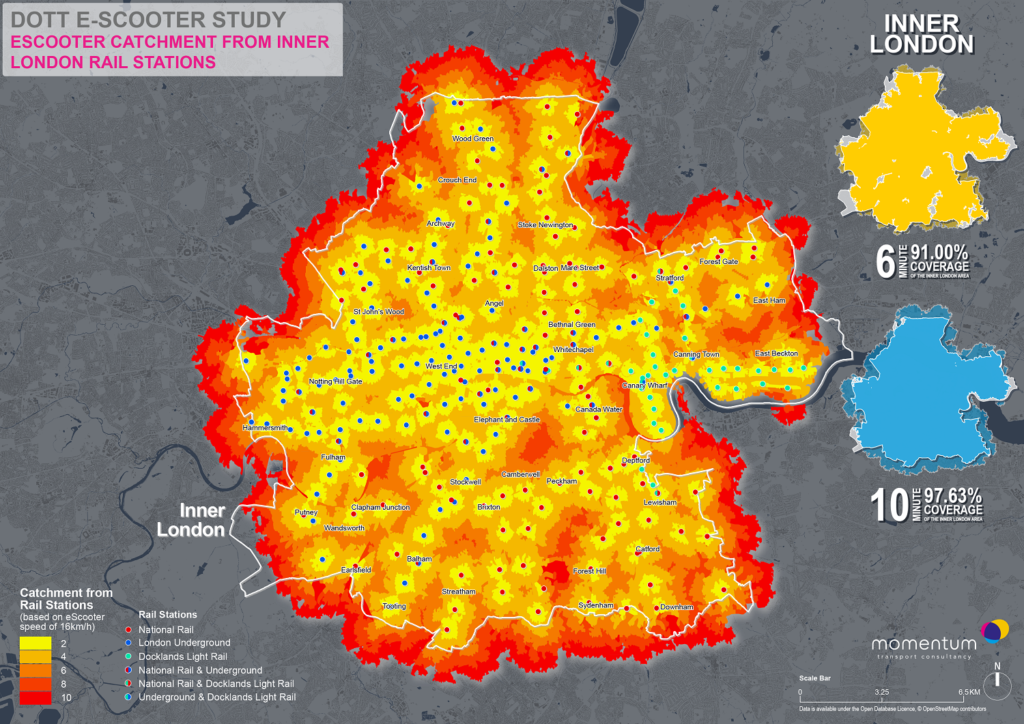
4. Replacing car journeys with e-scooter rides is needed in London, where car use is nearly five times higher than in Paris.
Those rides can be fast too: some examples in the report show overall journey times could be halved in both inner and outer London by combining walking with e-scooter use. And e-scooter trips tend to be much more multimodal than bicycling (27% plays 9%).
“While the impacts of car usage are well documented, car trips remain stubbornly high in London,” says the report. Ouch. “This is particularly relevant in outer London, where the Travel Demand Surveys indicate that as many as 45% of trips in 2018-19 were completed by car.”
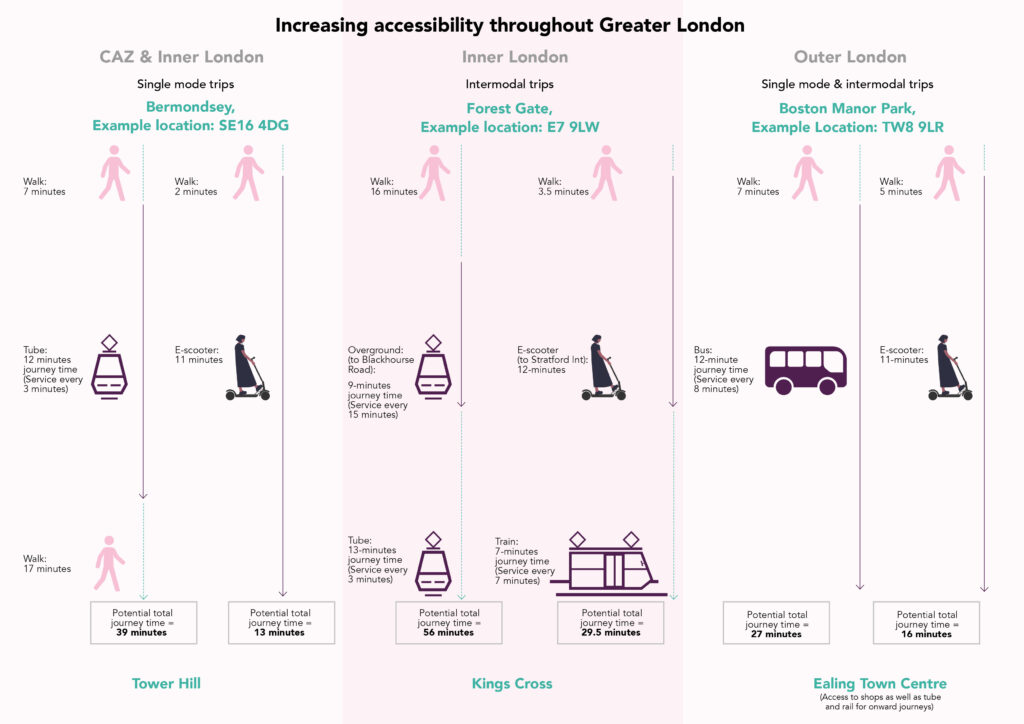
5. Local authorities are most successful when they leverage the expertise of micromobility operators but take charge of developing city-wide parking strategies.
Shared e-scooters are a new concept and don’t fit easily within traditional methods of operating public transport. But examples such as Paris point the way for London to short-cut any teething troubles and get it right the first time.
The report sums it up nicely: “Overall, the objectives of the e-scooter trials in London should be to demonstrate how e-scooters can provide relief to the public transport network in the short-term during the Covid-19 pandemic with social distancing measures in place, and reduce the mode share for cars (and thus air pollution and congestion) in the long-term. The parking strategy must be designed to facilitate the accomplishment of these ambitions.”
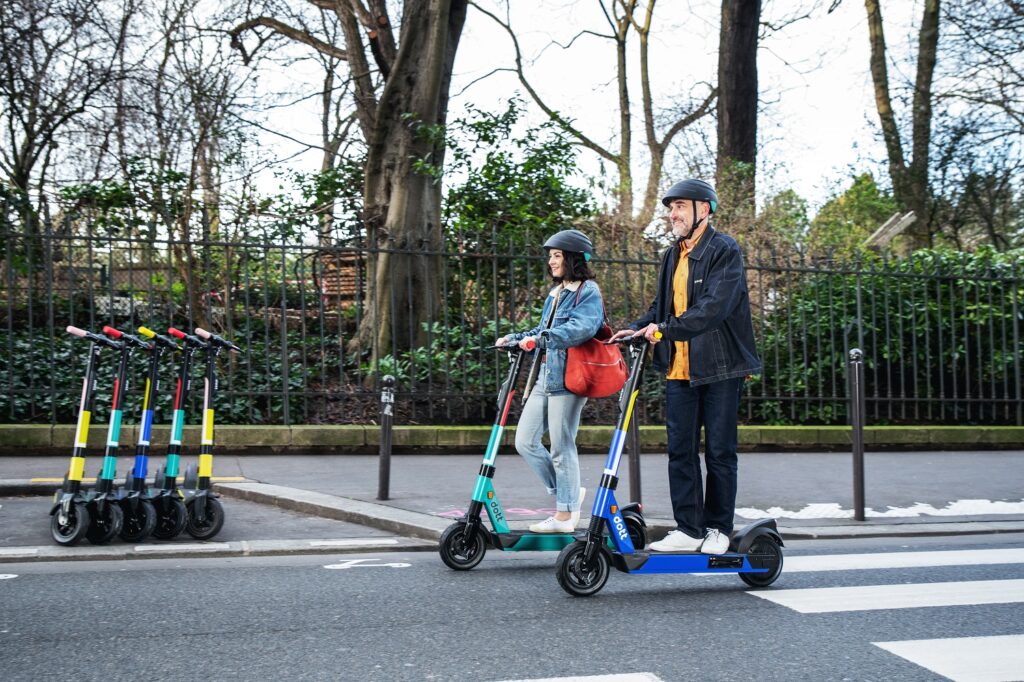
As London readies itself for a city-wide e-scooter trial, learning lessons from our nearest neighbour makes a lot of sense. Dott has also done a lot of the groundwork in terms of parking analysis. It’s a meaningful and considered piece of work.
“This report highlights the huge strides we have made over the last two years to move away from free floating and towards smart parking, with over 97% of all Dott trips in Paris now finishing within dedicated parking zones,” comments Dott co-founder Maxim Romain. “This success is a result of the exclusive smart parking technology we developed in-house and our close collaboration with the Paris council to implement thousands of parking zones all across Paris. Having done it in Paris, we are well positioned to replicate this success in London.”
We simply can’t cover the entire 65-page report in enough detail here, but it can be downloaded in its entirety from the Dott website. Anyone involved with e-scooter trials in London and across the UK would be well advised to do so.
Sponsored by Dott
This article is featured as part of our partnership with Dott.

